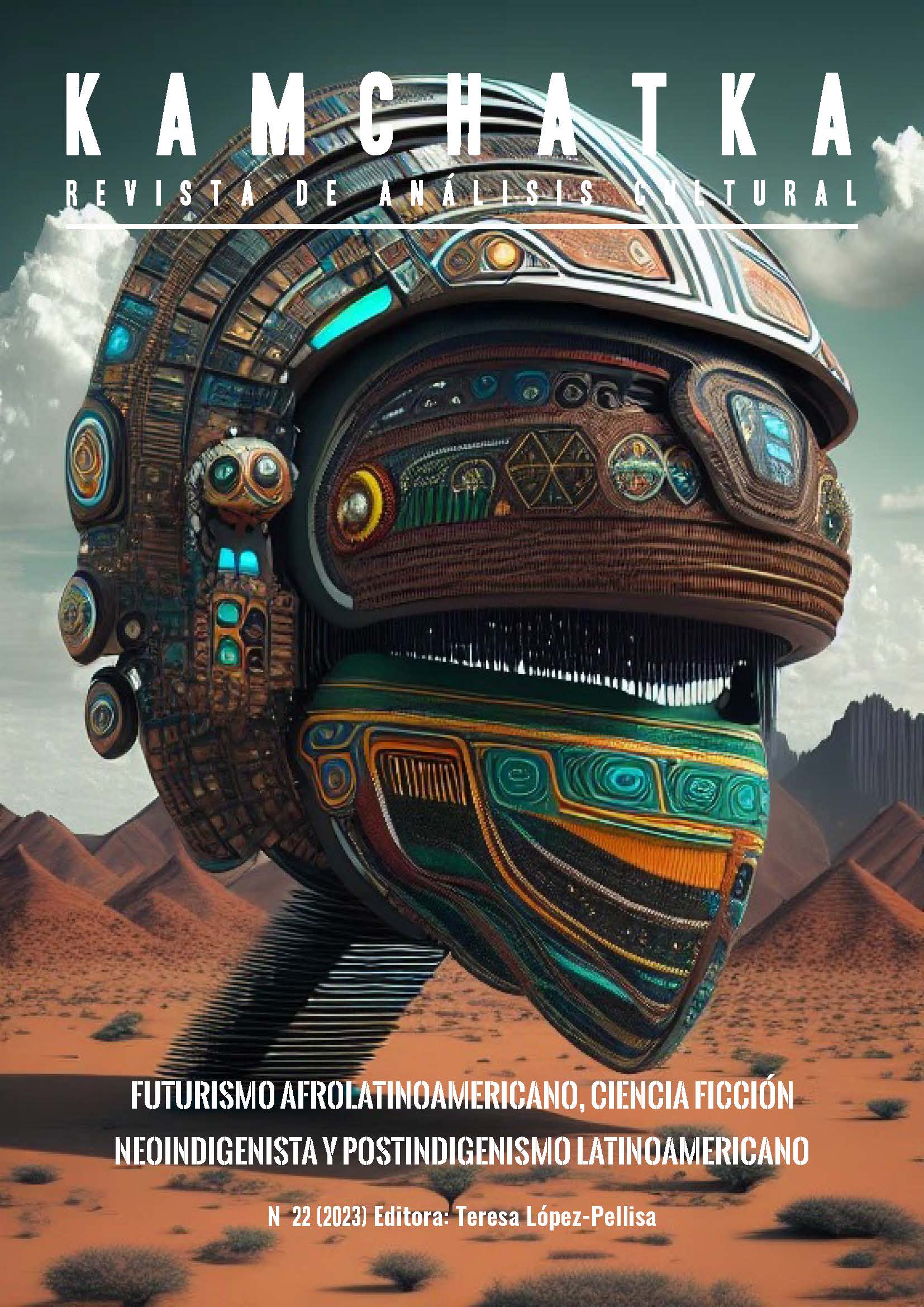The fractured present. Narrative temporality and the production of meaning about the past in Crematorio (Chirbes, 2007) and Simón (Otero, 2020)
DOI:
https://doi.org/10.7203/KAM.22.27493Keywords:
Spanish Contemporary Fiction, Narrative Temporality, Rafael Chirbes, Miqui Otero, Post-Transition, Crisis, Nostalgia Abstract
Abstract
This paper presents a dialogue between the novels Crematorio (Chirbes, 2007) and Simón (Otero, 2020) based on the analysis of the evocation that each of them proposes of a specific historical time: the end of the transitional process and the consolidation of neoliberalism in Spain. Considering the time that has elapsed between the publication of both novels (2007-2020) and the way in which each of them articulates its narrative temporality, this dialogue will help us to read a significant change in the way of perceiving and narrating the recent past concerning the present from which each of them is represented.
The analysis presented will focus on the aspects that both novels have in common to propose an interpretation of their differences. Although in both novels, real estate speculation and its crisis will be the central motif that will catalyze the narrative exercise that explores the echoes of a near past from two different temporal poetics, the comparison between both readings reveals the literary articulation of two different generational sensibilities regarding the perception of the same historical time. Each in its way, both novels will share a nostalgic texture that will produce divergent senses about the past they both summon.
 Downloads
Downloads
 References
References
Alemán, Jorge y Cano, Germán (2017). Del desencanto al populismo. Encrucijadas de una época. Barcelona: NED.
Boym, Svetlana (2015), El futuro de la nostalgia. Madrid: Antonio Machado.
Chirbes, Rafael (2003), Los viejos amigos. Barcelona: Anagrama.
Chirbes, Rafael (2007), Crematorio. Barcelona: Anagrama.
Duval, Elisabeth (2023). Melancolía. Metamorfosis de una ilusión política. Barcelona: Planeta.
Gumbrecht, Hans Ulrich (2010), Lento presente. Sintomatología del nuevo tiempo histórico. Madrid: Escolar y Mayo.
Hartog, François (2007). Regímenes de historicidad. Presentismo y experiencias del tiempo. Ciudad de México: Universidad Iberoamericana.
Kornetis, Kostis (2015), “Introduction. The End of a Parable? Unsettling the Transitology Model in the Age of Crisis”. Historein, 15 (1), págs. 5–12. (https://doi.org/10.12681/historein.322).
Kornetis, Kostis y Cavallaro, Maria Elena (ed.) (2019). “Introduction: Lost in Transition?”. Rethinking Democratisation in Spain, Greece and Portugal. Oxford: Palgrave Macmillan, págs. 1-20.
Labrador, Germán (2015). “En la orilla de Rafael Chirbes: proteínas y memoria”. Túria. Revista cultural, nº 112, págs. 225-234.
López Carrasco, Luis (2020). “Formas cinematográficas para reconstruir la historia reciente”. Cntxt, 2020: https://ctxt.es/es/20201201/Culturas/34379/el-futuro-el-ano-del-descubrimiento-luis-lopez-carrasco.htm.
Maura, Eduardo (2018). Los 90. Euforia y miedo en la modernidad democrática española. Madrid: Akal.
Otero, Miqui (2020). Simón. Barcelona: Blackie Books.
Radcliff, Pamela, Kornetis, Kostis y Aires Oliveira, Pedro (2023). “The Southern European Transitions to Democracy: A Historiographical Introduction”. Mélanges de la Casa de Velázquez, 53-1, Dossier. 50 years of Scholarship on the Southern European Democratic Transitions: A Comparative Approach. (https://doi.org/10.4000/mcv.18531)
Ros Ferrer, Violeta (2021). "La revolución como terrón de azúcar. Nostalgia, memoria y transmisión en la narrativa de Rafael Chirbes". Lluch-Prats (ed.). El universo de Rafael Chirbes. Barcelona: Anagrama, págs. 495-511.
Sanz, Marta (2015). “En la orilla: notas de lectura”. Turia. Revista Cultural, 122, págs. 215-224.
Traverso, Enzo (2016). Melancolía de izquierda. Después de las utopías. Barcelona: Galaxia Gutenberg.
Vidal-Pérez, Aina (2018). “Falso esplendor en la ciudad turística: imaginario y panóptico en el skyline costero de Crematorio, de Rafael Chirbes”. Imagonautas, 11, págs. 1-16.
Downloads
Published
How to Cite
-
Abstract594
-
Artículo PDF (Español)290
Issue
Section
License
This journal provides an immediate free access to the content on the principle that freely make investigation available to the public, which promotes an increased global knowledge exchange.
Unless otherwise indicated, texts published in this journal are under the license Attribution-NonComercial 4.0 by Creative Commons. These texts may be copied, distributed and publicly communicated whenever the publication’s author and title are quoted and whenever they are not used for commercial purposes. In any case, intellectual property of the articles and its potential economic rights entirely belong to its authors.
The full license can be consulted on https://creativecommons.org/licenses/by-nc/4.0/. We encourage authors to disseminate papers published in Kamchatka. Journal of cultural analysis electronically, in institutional digital repository or in their websites.





